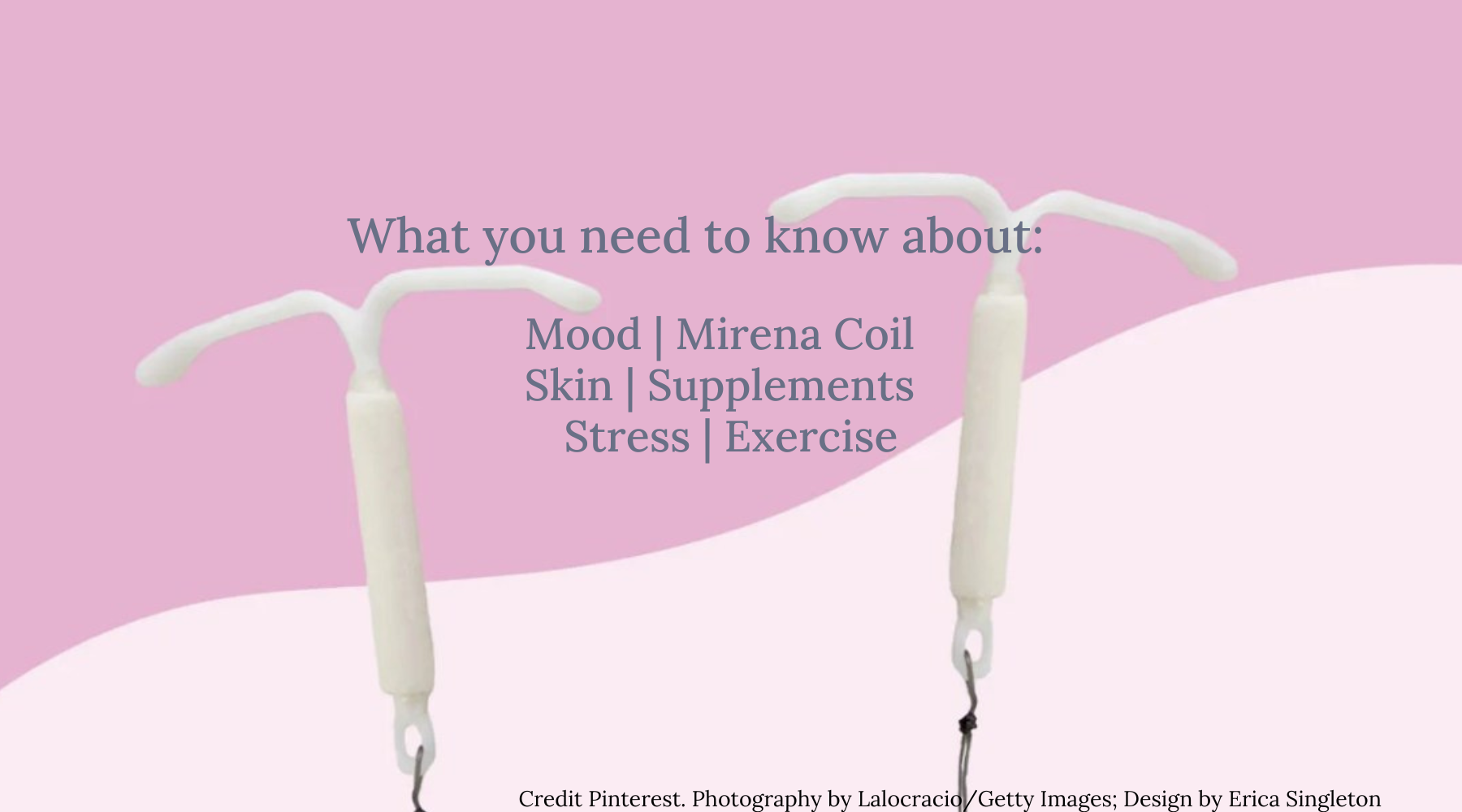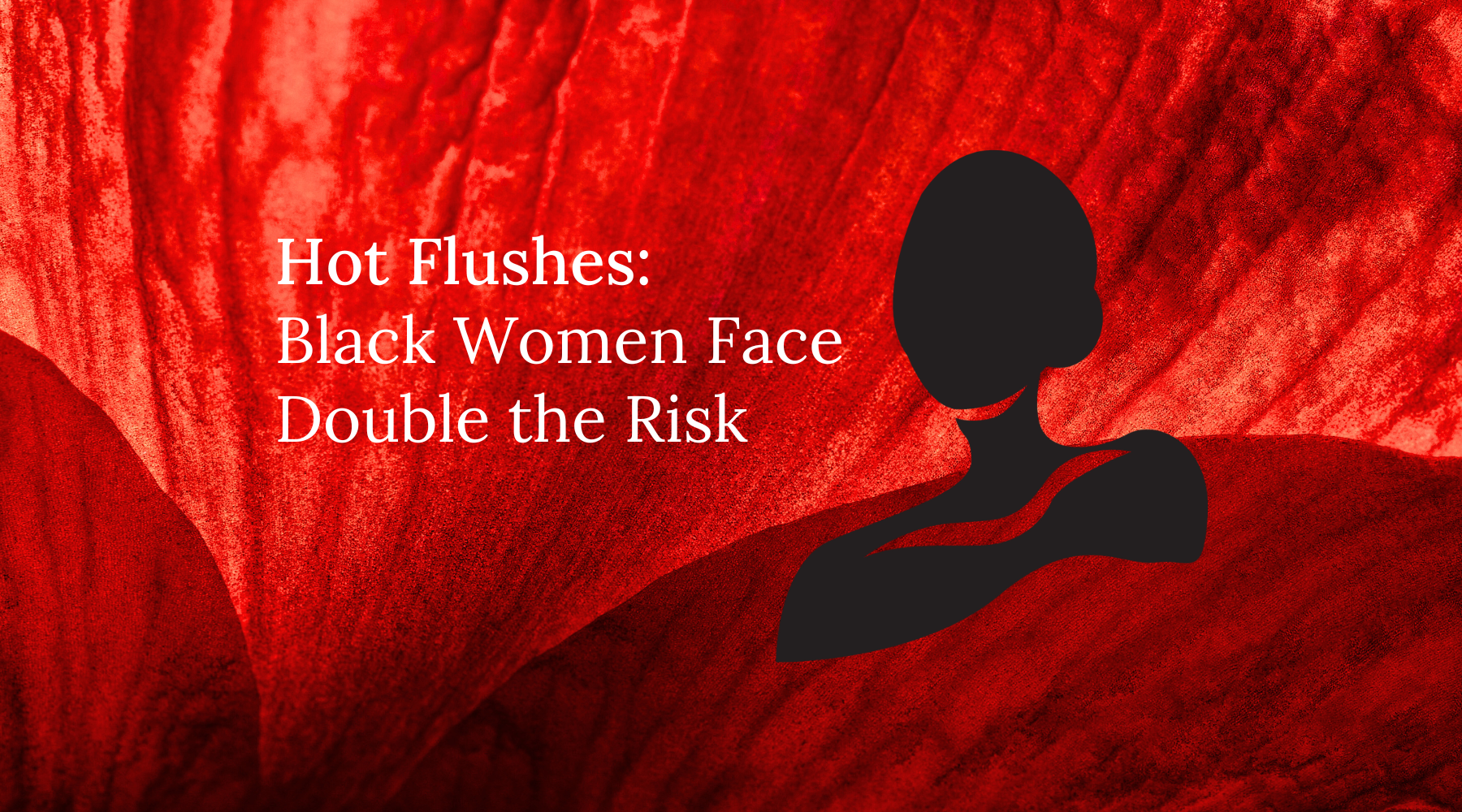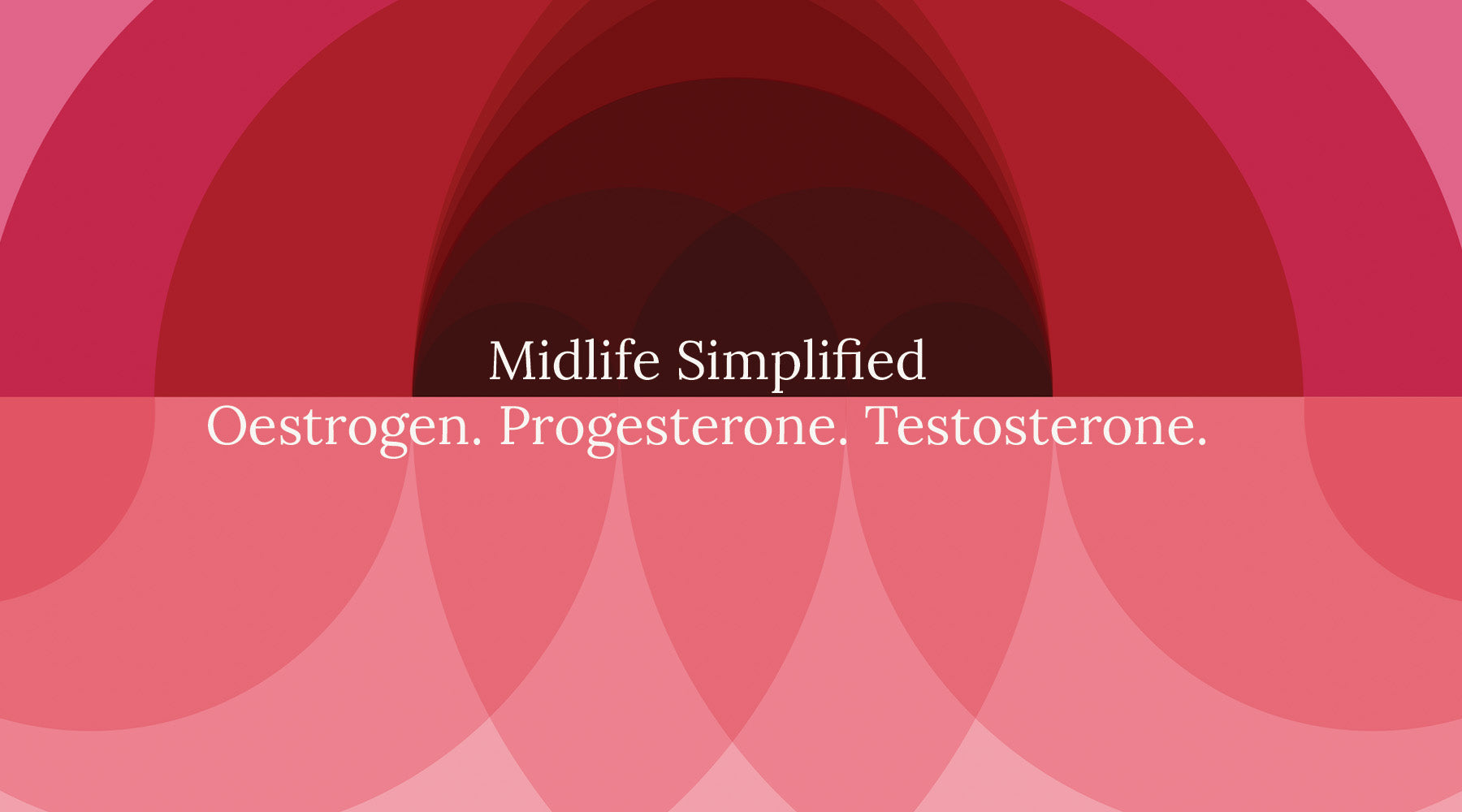
Hormone Levels Declining
The gradual reduction of hormone production in midlife and onwards is our body's natural way to tell us to adjust our life and enjoy things differently. In our 40s we can make some adjustments, and as symptoms arise later, we have many options to choose from to address them. It's being informed and keeping it simple, which Midst can help with. Midst aims to offer solutions across a range of areas: medical, technology, alternative therapies, lifestyles changes, diet and supplements.
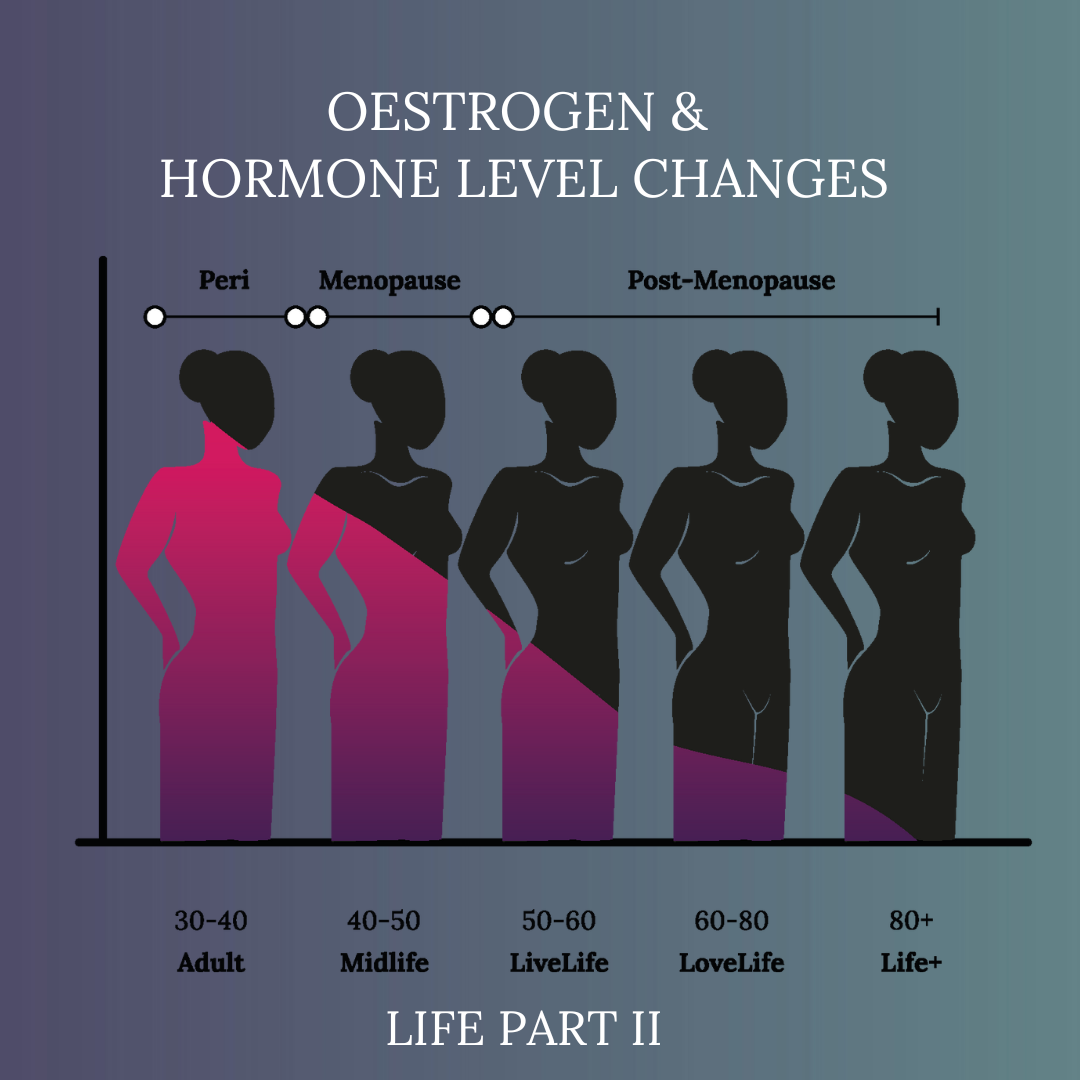
Understanding the changes
At Midst, we want to ensure women, and their partners, friends and family understand why these changes are happening at this point in midlife. The 3 main reproductive hormones decrease as the ovaries stop producing hormones and releasing eggs.
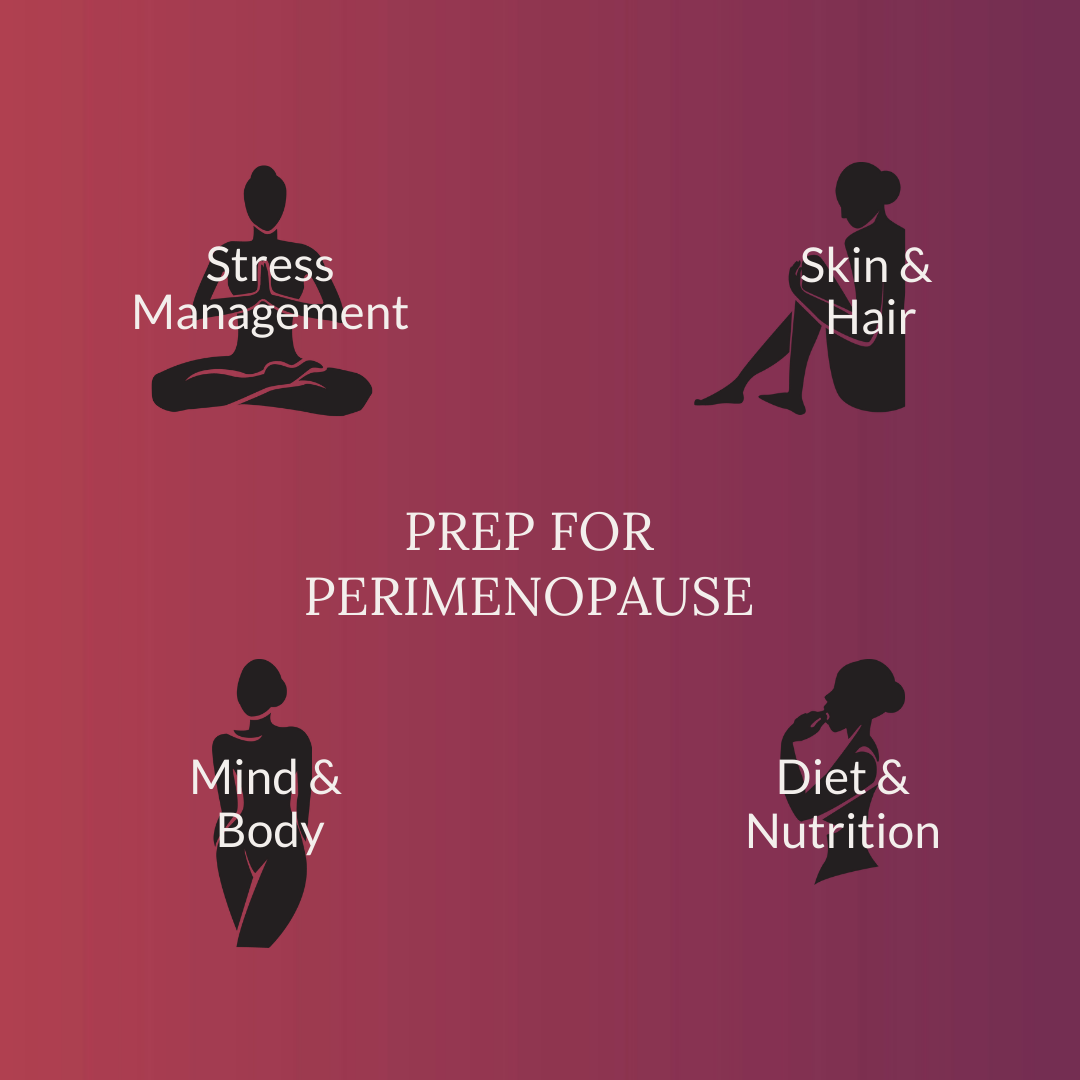
Preparing for Midlife
As we approach midlife, we can use this understanding and look after ourselves by making some conscious lifestyle adjustments. Midst summarises these into 4 areas:
Mind & Body
Skin & Hair
Diet & Nutrition
Stress Management
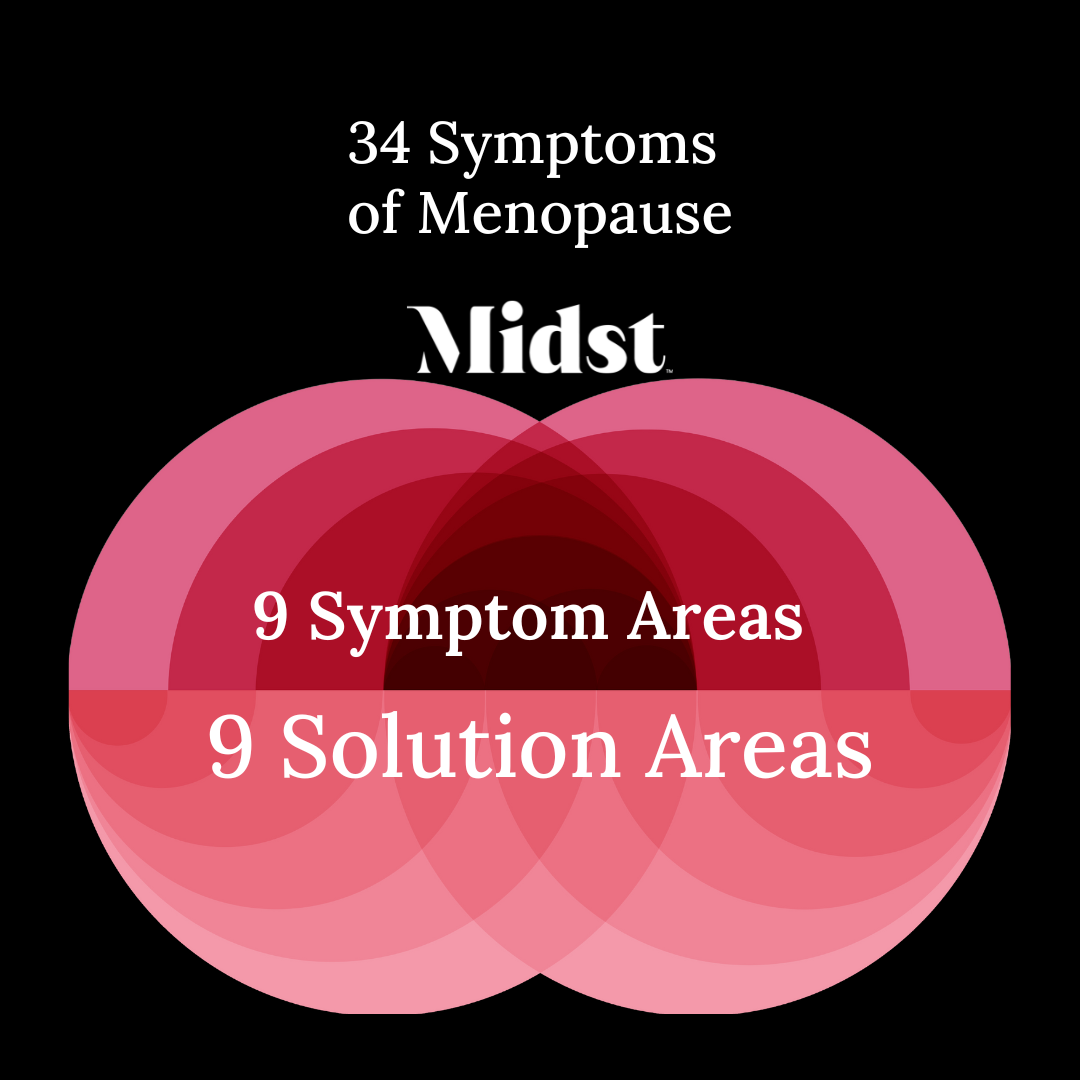
Solutions to Symptoms
When hormonal fluctuations occur it can be hard to recognise the symptoms. Midst have simplified the 34 symptoms into 9 symptom areas and discovered options and solutions within 9 different areas:
Technology | Medical | Diet | Exercise | Therapy | Supplements | Lifestyle | Skills | Products
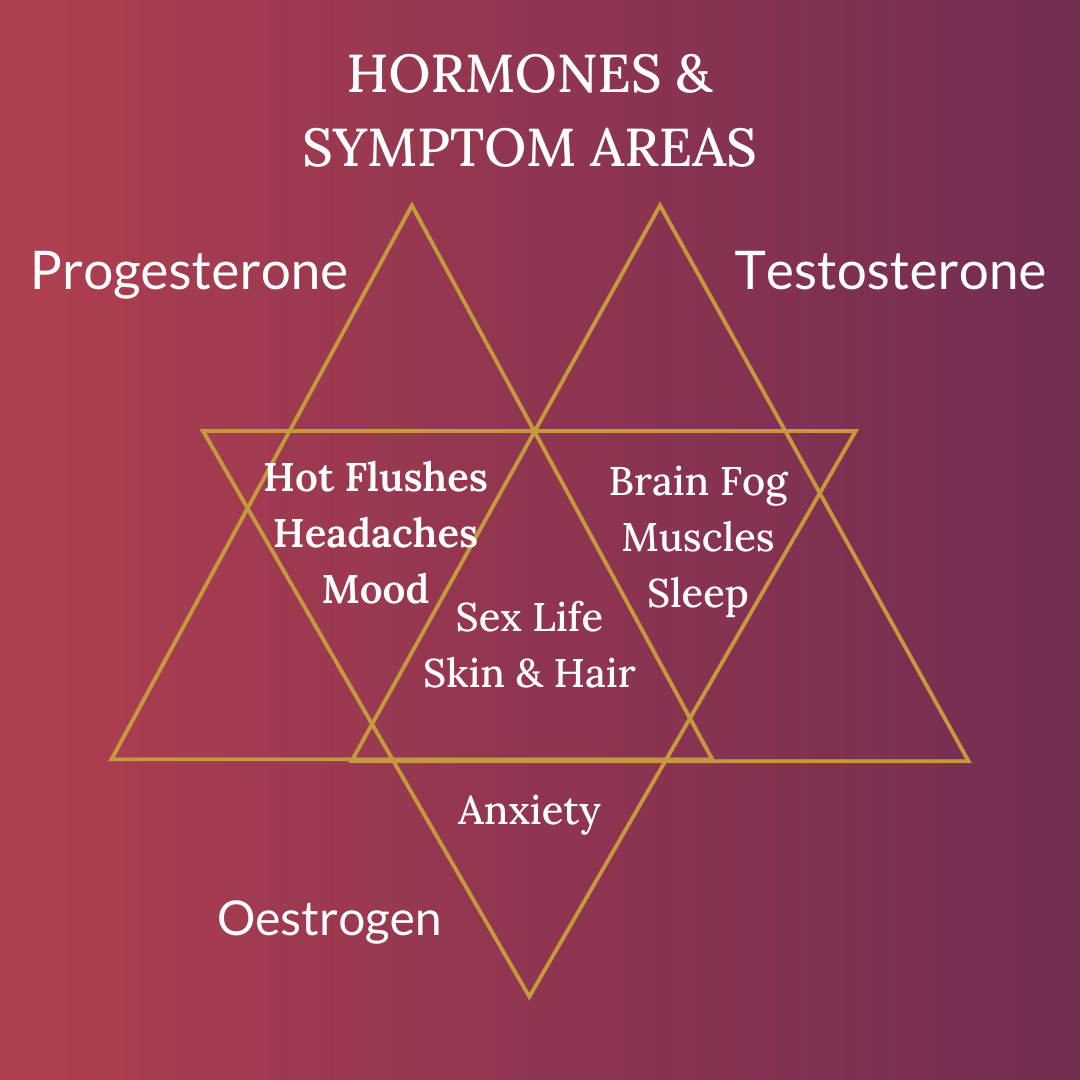
Hormones & Symptoms
Each of the three hormones play a role in different symptoms. So it's important to understand it's not only Oestrogen decline causing effects.
Sex Life, and Skin & Hair are affected by all three fluctuating and declining. It's worth understanding how these 3 hormones play a role.
Symptoms Vs Hormones Simplified.
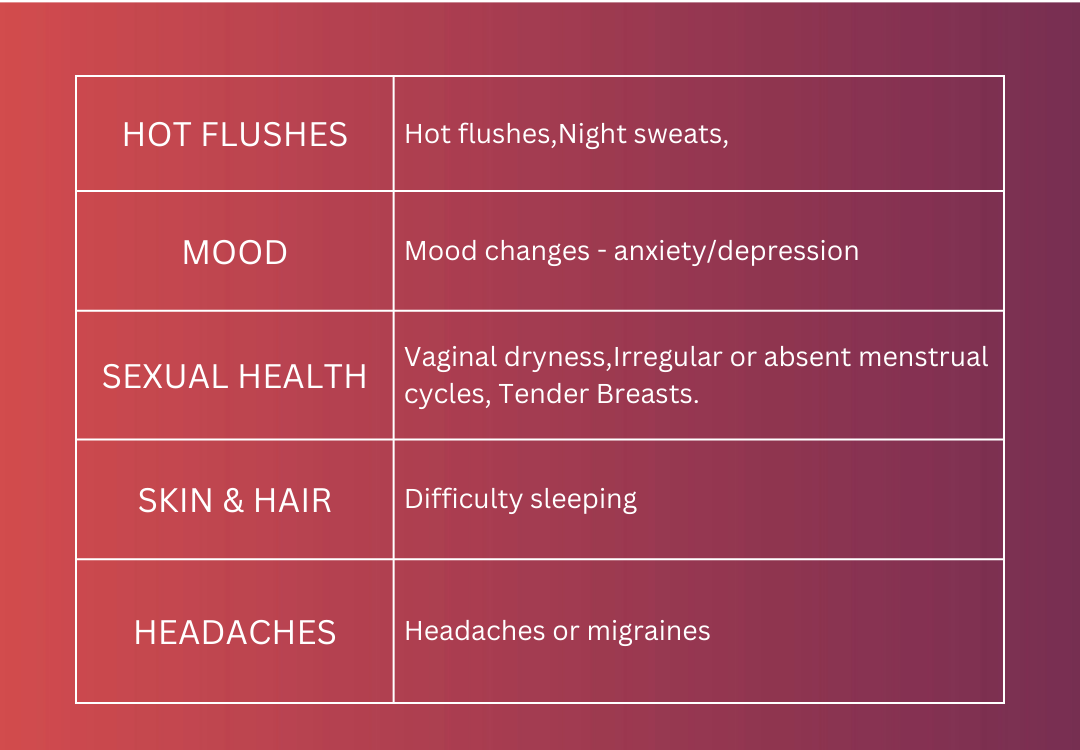
PROGESTERONE
Prepares womb for pregnancy and a mild antidepressant due to calming effect on the brain.
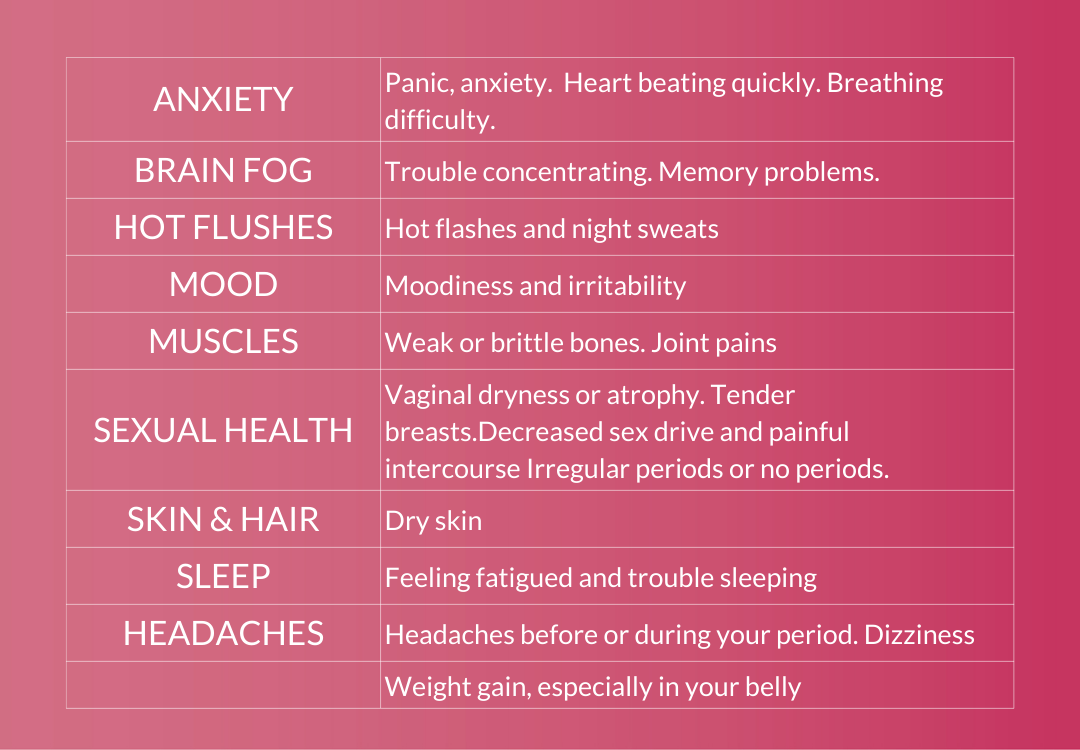
OESTROGEN
Oestradiol: powerful form needed for reproduction
Oestriol: weaker for for pregnancy
Oestrone: main form produced post menopause
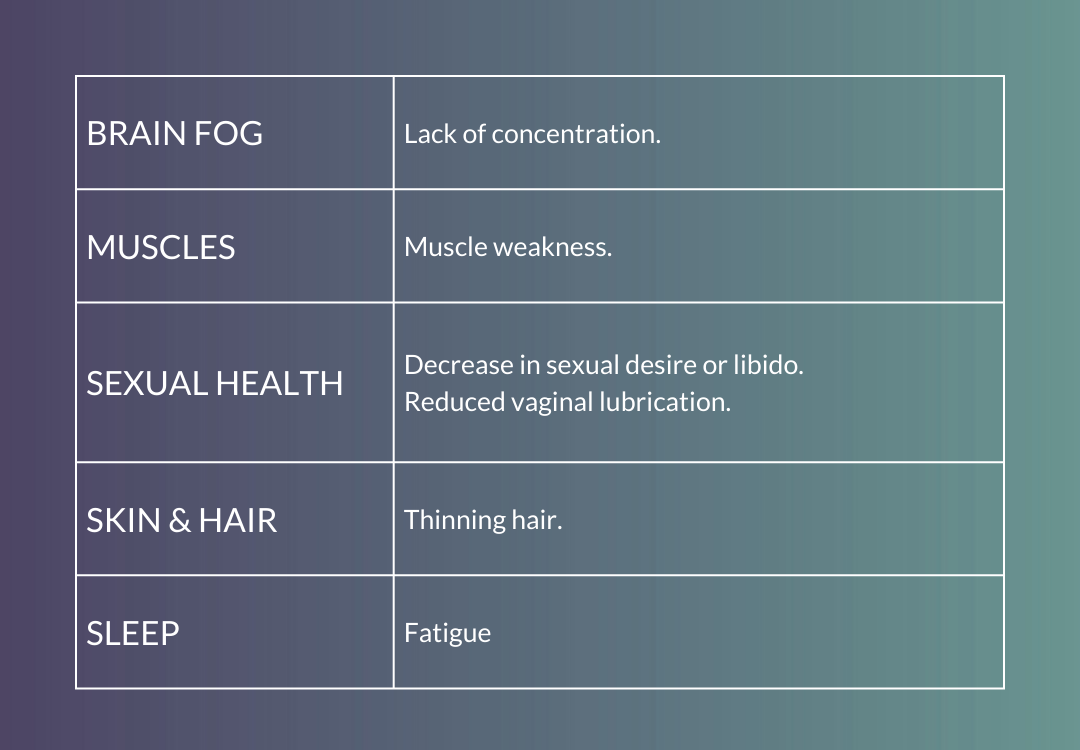
TESTOSTERONE
Supports libido, energy and motivation.
Understand it. Keep it simple. Find options and solutions for you.

